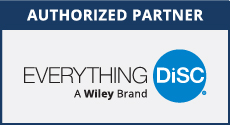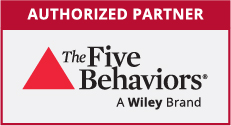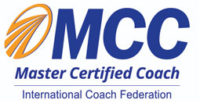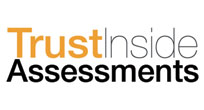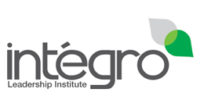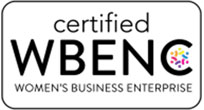By Mark Scullard, Wiley’s Senior Director of Innovation and Research
In the last three years, we have seen more glimpses into one another’s personal lives than ever before. How often has someone’s pet (or child!) popped into view on a video call, or have you heard the familiar click of a blinker as a coworker takes a meeting while shuttling the kids to school? It’s not entirely uncommon to get a “decline” for a meeting invitation because it’s during someone’s weekly yoga class or telehealth appointment. What was once seen as verboten in the pre-pandemic workplace is now par for the course in the new employee-centered world of work. Being able to focus more on work/life balance has been an evolution in many organizations and for the most part, people have enjoyed the increased flexibility that keeps them connected to home and wellness while continuing to drive results.
However, the question is – are they driving results? And how does this new people-centric focus affect managers who are learning to walk the fine line between making space for employee well-being while also continuing to meet goals, increase the bottom line, and power their business? We wondered how managers are faring in this new paradigm.
Balancing Well-Being and Results
Wiley Workplace Intelligence surveyed 6,004 individuals, of which 3,363 identify as people managers, to find out how managers, specifically, are coping with these changes. The evolution of leadership from the outdated “command and control” model to a more egalitarian, people-focused, and accessible approach has put unique pressure on those in the middle.
It’s clear that managers are in an increasingly complicated role. While our survey respondents reported facing multiple challenges, balancing employee satisfaction and productivity ranked the highest.
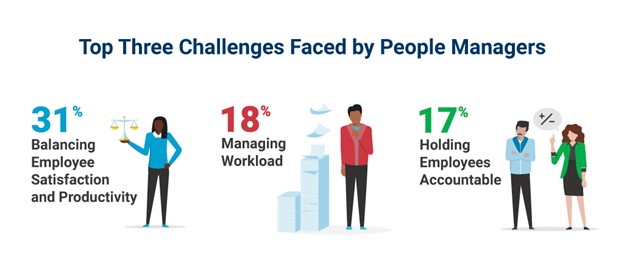
Evolving Relationships with Leadership
The relationships between people and their managers have also evolved. While these changes have created a more open and progressive dynamic that promotes increased overall job satisfaction due to better communication, it can be challenging for managers to hold people accountable in this new context.
While better work/life balance is the norm, what happens when someone’s weekly yoga class or home life responsibilities are causing them to miss deadlines or decrease the quality of their work? Nearly 20% of managers and supervisors said that holding employees accountable is their biggest challenge, which speaks to the difficulty managers specifically face in holding space for both wellness and results compared to executive-level employees who are more removed from the day-to-day goings-on within the organization.
Making accountability even more tricky, is the shocking statistic that 63% of people managers find dealing with interpersonal/attitude issues with their direct reports the most challenging.
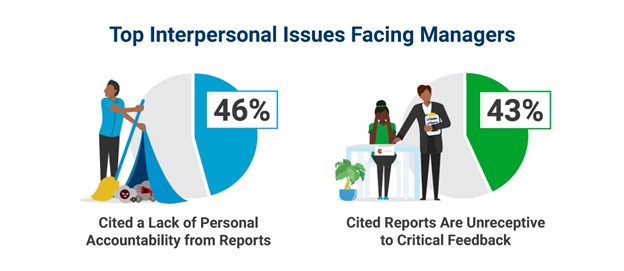
There is a clear opportunity here for employees at all levels to reflect on how they are showing up in their relationships at work and with their teams. Additionally, people managers have the opportunity to incorporate well-being initiatives into the process of achieving organizational goals in order to meet employees where they are, while working towards better accountability and consistent results.
Increased Well-Being Leads to Better Results
Despite the manager-specific issues we have outlined here, overall, the new focus on well-being has led to positive changes in the workplace. Almost half of those surveyed, including employees at all levels within the organization, report that employee wellness has positively impacted performance in their organization.
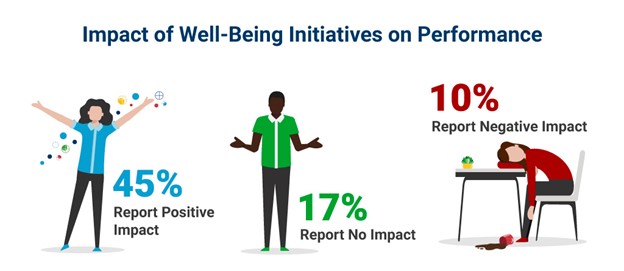
How Managers Can Leverage Well-Being Initiatives for Increased Performance
In this new context, it is important that managers embrace the balance of well-being and results. Working to find ways to make room for well-being while still maintaining high expectations for performance is a key to success. In fact, when managers set an example by leveraging well-being initiatives themselves, it can help combat some of the stress they are feeling as they try to find stability in the new normal.
Whether that means holding firm boundaries around working hours, not working while on vacation (not even that one call you make an exception for!), or participating in wellness initiatives, managers can both lead by example and reap the benefits of a well-being focused organization.
In fact, building wellness into results by celebrating team accomplishments with rewards like a free afternoon or a fun activity, or treating team objectives like a journey instead of a destination can go a long way in creating a culture that can prioritize both wellness and results. While managers may be under unique pressure, they can also leverage the benefits that are designed to bring increased balance and wellness to the workplace.
Help Your People Work Better Together While Achieving Results
While the world of work is constantly evolving, one thing is certain: strong interpersonal skills are imperative in today’s workplace. Whether it’s to improve communication, encourage accountability and drive results, or increase cohesion on teams, facilitated learning experiences with proven brands like Everything DiSC® and The Five Behaviors® give organizations the tools they need to succeed.
Interpersonal skills don’t necessarily come easily to everyone and need to be learned and practiced like any other skill.
To discover how Everything DiSC® and The Five Behaviors® can deepen understanding of self AND others, inspire collaboration and ignite cultural transformation in your workplace, connect with Laura A. Davis and Associates, your Everything DiSC Authorized Partner.



